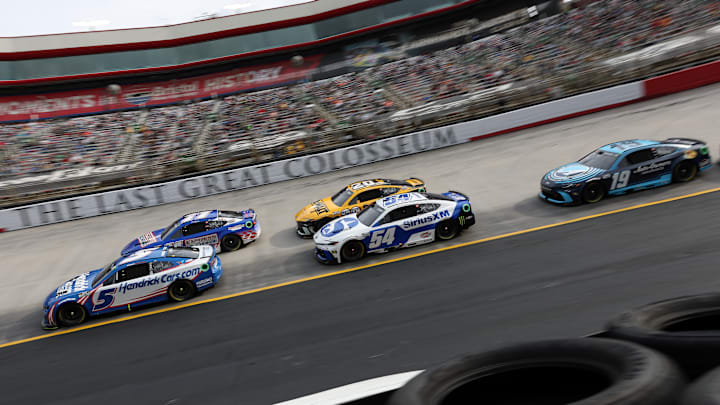Joe Gibbs Racing's Denny Hamlin won Sunday afternoon's NASCAR Cup Series race at Bristol Motor Speedway, which was the first regular season on the concrete surface at the "Last Great Colosseum" since 2020.
But because he only scored four stage points, there were five drivers who scored as many or more points than he did throughout the entire Food City 500.
The driver of the No. 11 Toyota scored 44 points throughout the 500-lap race around the four-turn, 0.533-mile (0.858-kilometer) high-banked Bristol, Tennessee oval, which was tied for the third highest total with three other drivers. Two drivers, RFK Racing's Brad Keselowski (third place) and teammate Ty Gibbs (ninth), managed to outscore him.
Drivers winning races and not scoring the most points is not a new concept; it has been mathematically possible in every race since stage racing was introduced back in 2017, and it even happened a few weeks ago at Atlanta Motor Speedway, when race winner Daniel Suarez and runner-up Ryan Blaney swapped places in the final points tally.
But did you know that it is possible a NASCAR Cup Series race winner to finish outside of the top 10 entirely?
There are 110 stage points up for grabs in each race, with 10 going to the stage winner down to one for the 10th place finisher. As far as race results go, the winner gets 40, and the runner-up scores 35. From there, the totals decrease by one per position; everyone from 36th and lower scores just a single point.
Here's how a race winner can finish outside of the top 10 in points scored.
Race winner: 40 points (+0 stage points)
2nd place: 35 points (+6 stage points: 1+5)
3rd place: 34 points (+7 stage points: 3+4)
4th place: 33 points (+8 stage points: 5+3)
5th place: 32 points (+9 stage points: 7+2)
6th place: 31 points (+10 stage points: 9+1)
7th place: 30 points (+11 stage points: 2+9)
8th place: 29 points (+12 stage points: 4+8)
9th place: 28 points (+13 stage points: 6+7)
10th place: 27 points (+14 stage points: 8+6)
11th place: 26 points (+20 stage points: 10+10)
Make note of two things: first of all, no stage values are reused, since each stage finish can only have one driver. And second of all, the 11th place finisher wouldn't need all 20 stage points to pass the race winner; his stage results could swap with anybody else above him, provided he doesn't give up any more than five points.
For example, he could score seven points in stage one, which would leave him with 43 points instead of 46 -- and thus the fifth place finisher with 44 instead of 41. The race winner would still finish 11th in total points scored.
